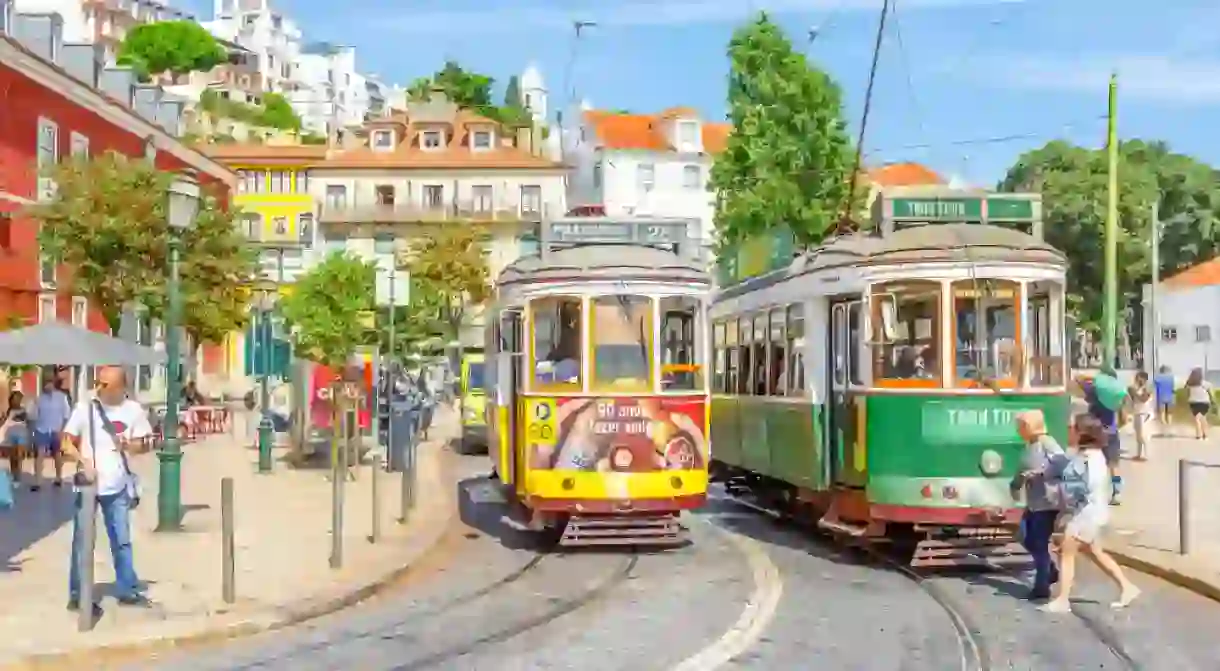How Lisbon's Gourmet Food-Circus Markets Are Taking Off

It’s no secret that Portugal is an excellent port of call for foodies, but classic and traditional Lisbon is refining its culinary scene and, dare we suggest it, turning itself into a destination for fine dining. Here’s everything you need to know.
Background
Historically, Portugal was a country of pioneers, leading voyages during the Age of Discoveries in the 15th and 16th centuries. The country’s 21st-century trailblazers, however, are to be found in the kitchens, cooking up all manner of gourmet dining delights for visitors to sample in places such as Time Out Market Lisbon, the Mercado de Campo de Ourique, or one of the luxury concept venues.
Portuguese cuisine
A wealth of exceptional local ingredients like fresh seafood, crisp and colorful herbs, aromatic spices, and free-range livestock help make up Portuguese cuisine. Dishes were traditionally designed to be either filling and robust or simple, the flavor determined by the quality and freshness of each component. Nowadays, however, recipes are taking on a new look and style, and chefs are serving experiences as much as meals.
Market culture
Visitors and locals can sample many of Lisbon’s top gourmet flavors in Time Out Market Lisbon in Cais do Sodré, a food-circus-style market that quickly turned a once overlooked historical building into a booming business, now arguably one of the more popular attractions in the Portuguese capital.

What’s on offer
In addition to the food and drink from a variety of local and national stalls, part of the market is designed specifically for gourmet dining. A number of the chefs whose recipes can be enjoyed from this trendy hotspot have received Michelin stars in their own restaurants – this past spring, Time Out Market Lisbon was recognized internationally as one of Europe’s more forward-thinking concept venues with its own “Oscar”.
Another “food circus” serving gourmet cuisine is the Mercado de Campo de Ourique, last renovated in 2013 (a year before Time Out became a realized dream). If the newer market is more focused on attracting tourists, this older and smaller counterpart attracts more locals.

From traditional dishes that ooze comfort and simplicity like they were produced in a Portuguese grandmother’s kitchen, to artistic presentations that look too beautiful to touch, let alone eat, the Portuguese capital showcases it all. For a less “circus-style”, more gourmet setting, visit one of the luxury concept venues that have popped up throughout the city, like JNcQUOI or Bairro do Avillez.














